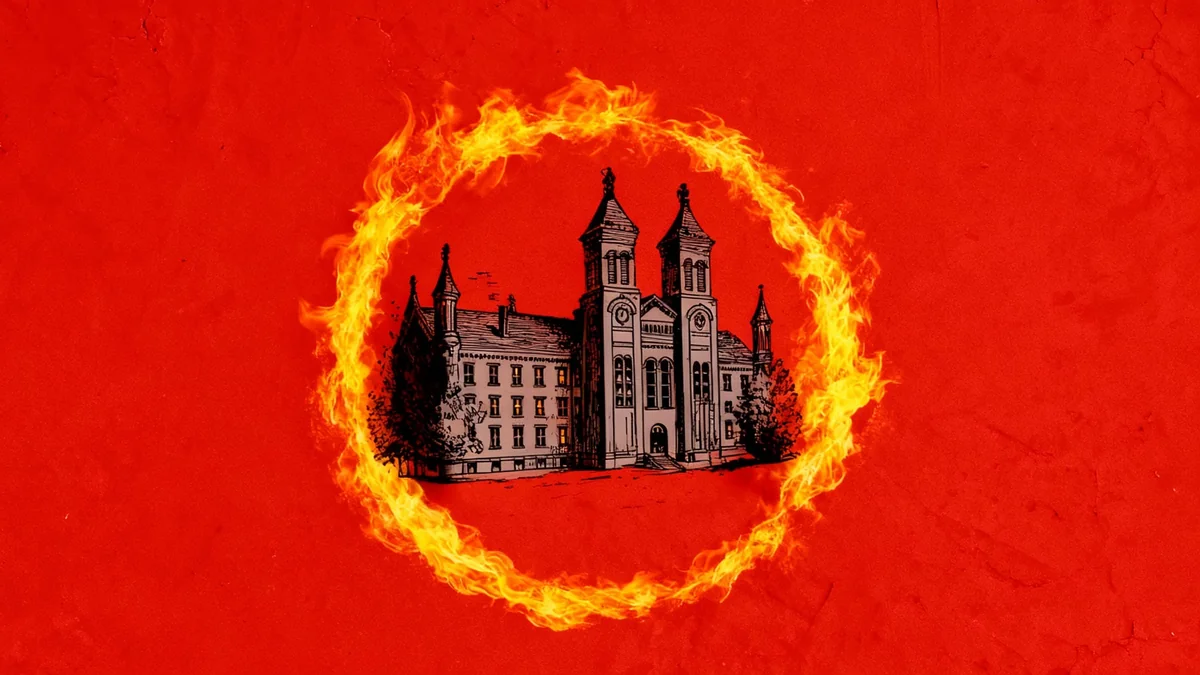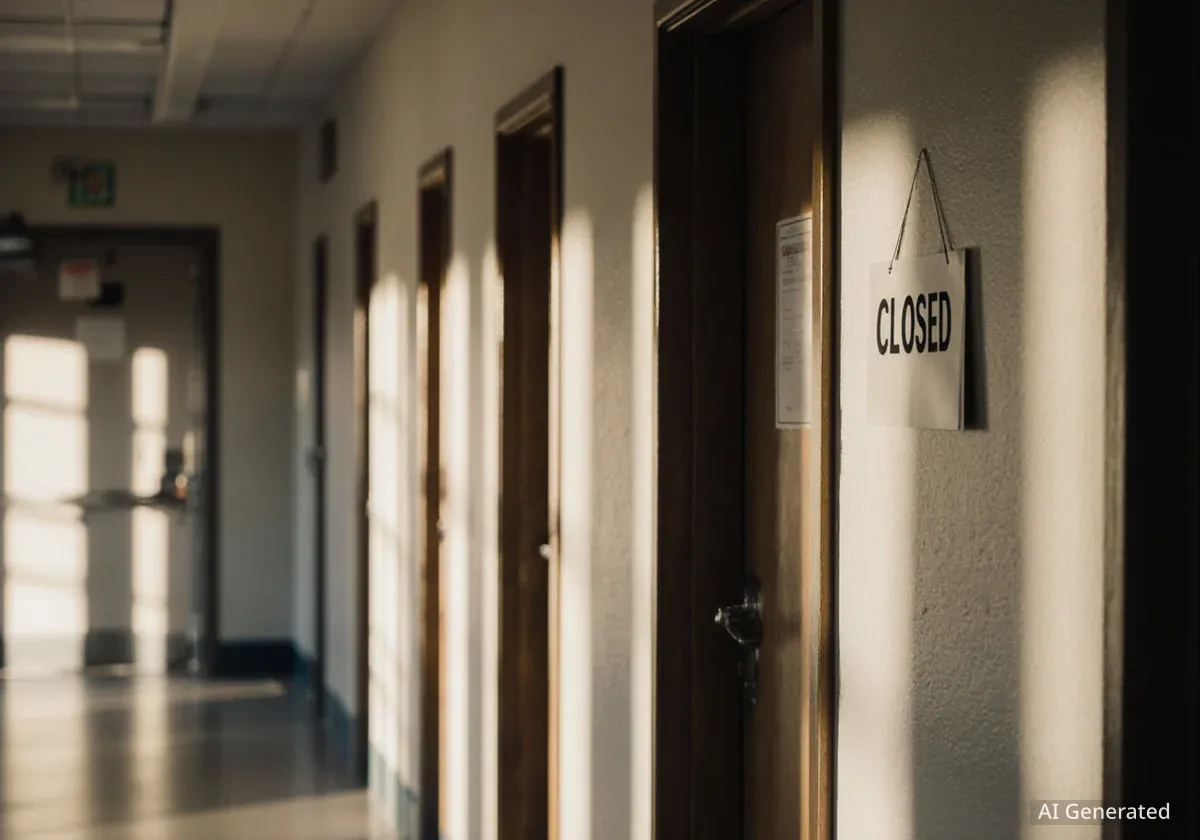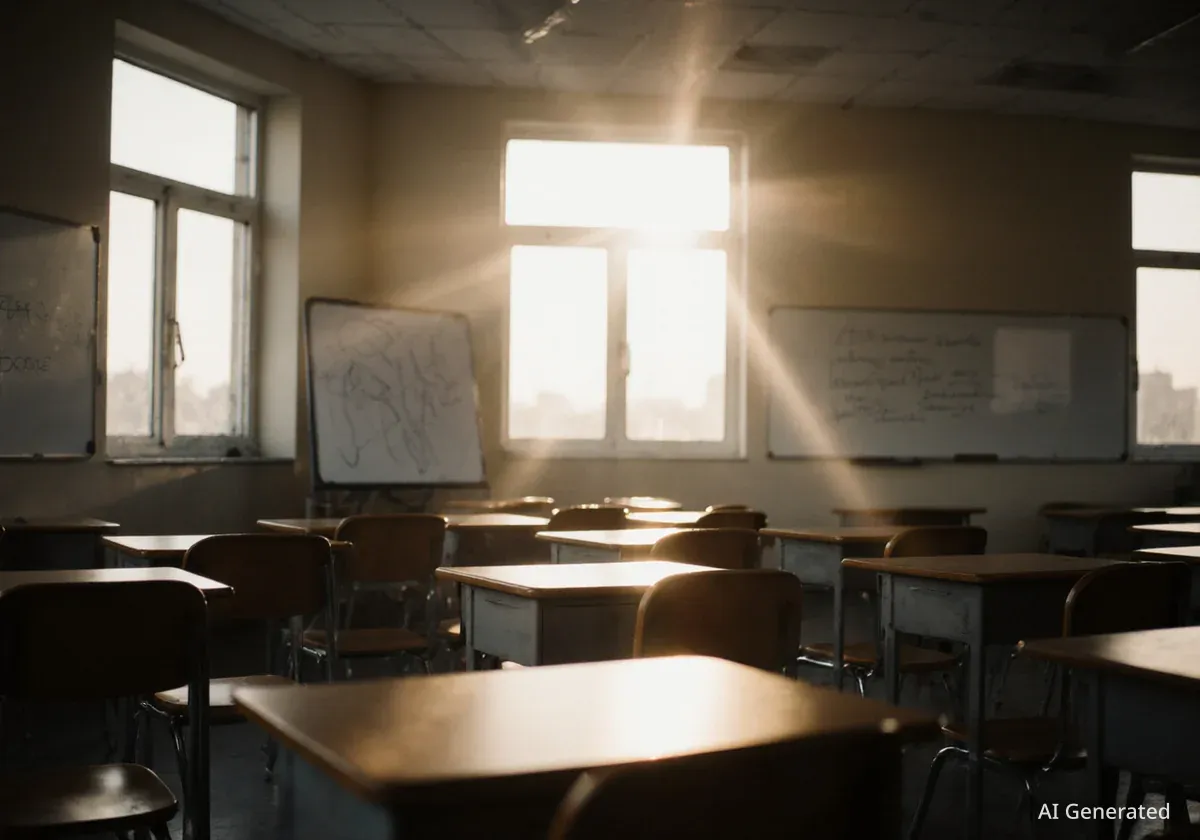A severe and prolonged contraction in the academic job market for humanities disciplines has left a generation of scholars with limited prospects, a crisis that began with the 2008 financial recession and shows no signs of reversal. For nearly two decades, Ph.D. graduates in fields like classics, history, and literature have faced a landscape where tenure-track positions are increasingly scarce, raising fundamental questions about the future of these academic fields and the students who pursue them.
Key Takeaways
- The academic job market for humanities Ph.D.s collapsed during the 2008 recession and has not recovered.
- Universities across the United States and the United Kingdom are closing humanities departments, particularly in classics.
- Despite dismal employment prospects, Ph.D. programs in the humanities continue to attract and enroll new students each year.
- The crisis has created a significant personal and professional challenge for scholars who have dedicated years to specialized study.
The 2008 Turning Point
The year 2008 marked a critical turning point for academia. As the global financial crisis unfolded, university endowments shrank and state funding for higher education was drastically cut. These budget constraints forced institutions to make difficult decisions, and hiring freezes were among the first measures implemented.
While many sectors of the economy eventually recovered, the academic job market for the humanities entered a state of permanent austerity. The number of available tenure-track positions, which offer job security and academic freedom, plummeted. What was once a competitive field became a near-impossibility for many highly qualified candidates.
Each subsequent year has seen a further erosion of opportunities. The few positions that open up often attract hundreds of applications from scholars with doctoral degrees from the world's most prestigious universities, creating a hyper-competitive environment with vanishingly small odds of success.
A Statistical Reality
Some academics have noted that the chances of a new humanities Ph.D. securing a tenure-track professorship are now statistically lower than winning some lotteries. This stark comparison highlights the profound disconnect between the number of graduates and the number of available careers.
A Cascade of Department Closures
The shrinking job market is not just a result of hiring freezes; it is also a symptom of a more fundamental shift in higher education. Universities are increasingly closing or consolidating humanities departments, especially smaller programs like classics, philosophy, and foreign languages.
These closures are often justified by administrators based on low student enrollment in humanities majors and a broader institutional pivot toward STEM (Science, Technology, Engineering, and Mathematics) and vocational fields, which are seen as more financially viable and directly tied to workforce demands.
This trend has been observed at institutions across both the U.S. and the U.K. The closure of a department not only eliminates faculty positions but also signals a devaluing of that field of study within the university, creating a cycle that can further discourage student interest and investment.
The Broader Impact on Education
The decline of humanities departments raises concerns beyond the job market. These fields teach critical thinking, ethical reasoning, and cultural understanding—skills considered essential for a well-rounded citizenry. As they are downsized, some educators worry about the long-term impact on the intellectual foundation of society.
The Human Cost of a Shrinking Field
Behind the statistics and institutional decisions lies a significant human toll. Graduate students invest between five and ten years of their lives pursuing a Ph.D., often accumulating debt and forgoing higher-paying career opportunities in the process. They do so out of a deep passion for their subject and the hope of joining the academic community.
For many, the realization that the career they trained for may not exist is a devastating blow. One English professor, reflecting on the situation, expressed concern for those who are uniquely suited for a life of deep thought and research, asking what becomes of them when the primary institution that supports such a life no longer has room.
"Without academic jobs, what would happen to those who cannot imagine anything but a life spent living entirely in their heads?"
This question resonates throughout the academic community as thousands of highly trained experts are forced to seek alternative careers, often in fields for which their specialized skills are not immediately recognized or valued.
The Paradox of Continued Enrollment
Despite the well-documented crisis, Ph.D. programs in the humanities continue to accept new cohorts of students every year. This has led to criticism from some quarters, who argue that universities are being irresponsible by admitting students into programs with such poor career outcomes.
Several factors contribute to this paradox:
- Passion and Optimism: Many prospective students are driven by a genuine love for their subject and believe they can beat the odds.
- Institutional Need: Graduate students are a crucial source of inexpensive labor for universities, often serving as teaching assistants and instructors for undergraduate courses.
- Lack of Transparency: While information about the job market is available, some programs may not fully articulate the severity of the crisis to prospective applicants.
The persistence of high enrollment in the face of a collapsed job market ensures a continuous supply of hopeful scholars for a system that can no longer support them. This structural imbalance remains one of the most challenging and debated aspects of the ongoing crisis in the humanities.





